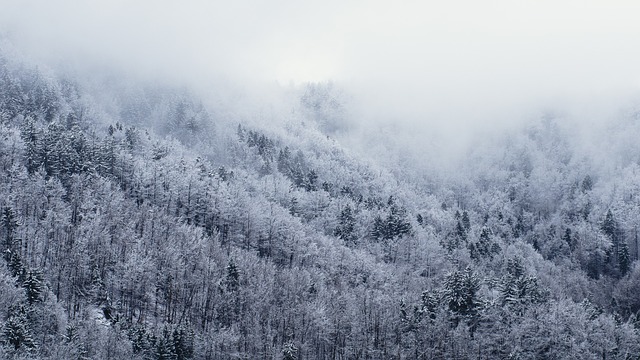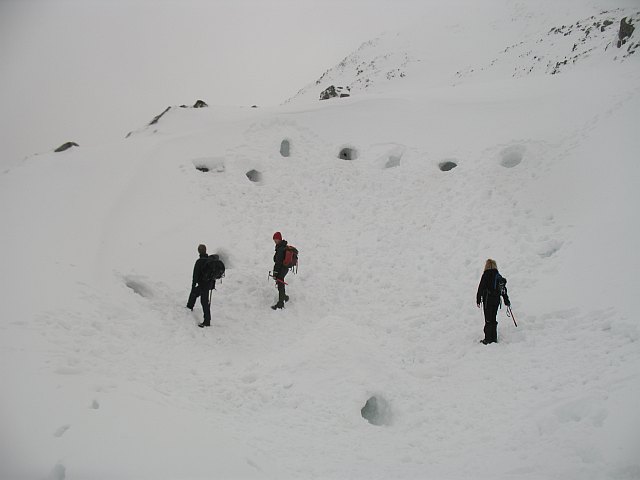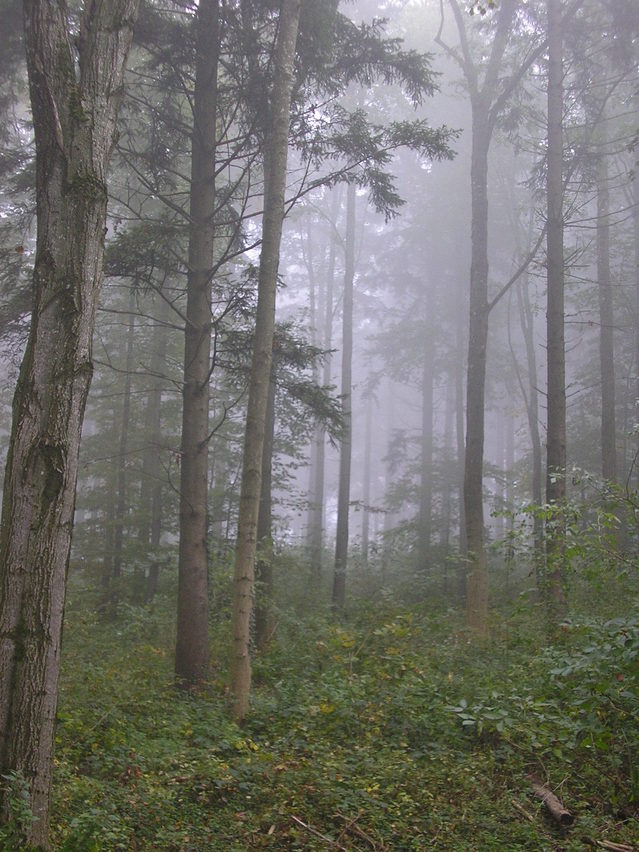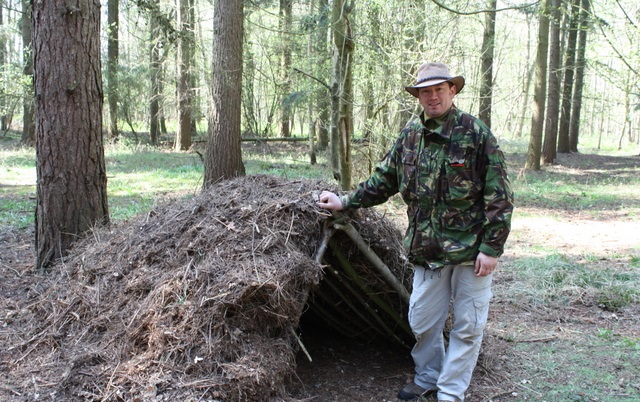
Hypothermia is a real thing, and if you find yourself abandoned in the middle of the wilderness from losing your crew, surviving a plane crash or you just can’t find your way back to civilization after your campsite and all your gear got washed away from a flash flood. Now you are completely isolated and alone with no sign of human life ANYWHERE. Surviving in extreme cold is hard ONLY if you don’t know what you’re doing.
Learn the ins and outs to survive the extremely cold nights so you have a chance to make it out alive. Whether it be a few days, a few months or a few years, you have a family waiting for you back home so do your best to survive.
Surviving In The Snow…BRRRR
You might think that you have no chance of surviving whatsoever while you’re completely alone in the snow, it’s getting dark and you’re shivering like there’s no tomorrow. But is there a chance? Of course!
Take note: Our bodies are made up of 70% water. WE can last up to three weeks without food, so forget about food for now. To survive we must stay hydrated, we will die within 3-4 days without consuming any water especially in cold temperatures.
First you will need to rest for the night.
Build Yourself A Snow Shelter – Piling up 3-4 feet of snow is way too much work for your current situation which will cause you to dehydrate faster. However if the snow isn’t that deep then this will need to be done, but take your time to avoid spending a lot of calories making your shelter.

The best way is to dig a snow trench shelter, don’t make it too big or too small, this is so your body will heat up the area in which you are in (underground trench). Yes you may be freezing cold but your body still generates heat, and this shelter will actually ‘hold’ the heat in to keep you warm.
BTW, snow stops being cold after a foot deep, remember that.
The Structure – Use sticks and blocks of icy snow to support the top of the shelter, stopping it from caving in. So pile up that snow for more insulation. And remember to cover up the entrance with anything you have. Plastic sheath, backpack, or even more snow if you don’t have any of these.
Pro Tip: Make sure you have a ventilation hole for oxygen purposes 🙂 And DON’T sleep directly on the snow. Cover the floor with leaves, grass or anything else you can gather to cover the up ground.
Easy ways to stay hydrated:
With a fire
- Boil clean snow and drink when cooled down.
- Create a snow marshmallow. Pack snow in a ball around a stick and place it close to the fire, then catch all the drops in a container or any other materials available.
Without a fire
- Eat the snow. This will melt inside you giving your body the water it needs (not too much at one time though, this could lower your body temperature significantly).
- Put some snow in a container, tin or water bottle and keep it between your clothing layers, while you’re staying active throughout the day this will eventually melt.
Surviving In The Forest
 This is where those hours of YouTube survival videos you watched is going to help you immensely (lol). Just like the nights in the snow, temperatures in the forest drop dramatically and they can drop fast. Stay calm, take action and you will survive.
This is where those hours of YouTube survival videos you watched is going to help you immensely (lol). Just like the nights in the snow, temperatures in the forest drop dramatically and they can drop fast. Stay calm, take action and you will survive.
You will need to create a shelter to survive the mass COLD chill waiting for you in the upcoming nights.
We don’t have snow to just dig into and sleep in now, so we have to do a little more brain work to get an efficient shelter up that’s going to hold AND keep your body warm the entire night and most probably more days, even weeks to come.
Fortunately, I have already created an article about building a shelter out of natural materials in the wild.
==> Take A Look!
Using Dead Animals
Warning: (Not for the faint hearted)
No doubt you’ve heard about this somewhere but I’m going to mention it for the sake of formality. If you stumble upon a dead carcass, maybe it’s a bull, steer or any other huge animal you find, slice that bi**h open, take out his guts and sleep in it for the night.
This is extremely warm and is enough to keep you alive until daylight, taking into consideration that you’re well-hydrated of course.
Critical Tips To Take Into Consideration
- Keep Your Feet Dry – Trench foot can happen and WILL happen if your feet are exposed to water or mud for long periods of time, causing blackened and death of surface tissue. It’s OK to get your feet wet every now and then but make sure you dry and warm them up asap, either with socks or even by the campfire.
- Cover Your Core – Keep your core covered the majority of the time which will help with overall body warmth, either with extra rags tied around your stomach, extra clothes for padding. Just use anything that can give you more warmth.
- Make Sure Nothing Gets Wet – Your gloves, boots, socks and other clothes are your lifesaver. If you get these wet hypothermia will kick in much faster, which in turn, causes death faster.
- Always Keep Your Head Covered – You can lose up to 45% body heat from an unprotected head, and even more without covering your neck, ankles and wrist.
Note: It doesn’t matter how much clothes you pile onto yourself, if your head, neck, ankles and wrist are exposed you’re really just wasting your time. This is half the battle over, literally!
- Keep Clothing Loose – Your chances of surviving is increased dramatically by keeping your clothes loose, yet layering as much as possible. We produce heat mostly where out largest muscles are, keep these areas loose and we maximize the amount of heat generated 🙂
Pro Tip: DON’T tighten up your clothing! Do this and you’re setting yourself up for condensation buildup and without ventilation, you will get colder than before.
- Keep Clothing Clean – Keep your clothes as clean as possible. Get dirt and oil onto your clothing, you are reducing the insulating value. No, I’m serious.
- Don’t Overheat And Sweat – Sweating is a survival technique our body uses to cool us down, however when we are finally cooled off again that sweat is going to stay on us making us even colder than before.
Learn These Before The Extreme Does Happen
We never know when we are going to be completely lost in the wild, with no one coming to search for us, which makes it a matter of life and death. What work you put in now will determine if you will survive later on or if you will die.
Here’s what I recommend you learn now, before the inevitable does happen:
Starting A Fire: The cavemen did it, and so can we. Learn to start a fire out of natural materials only and increase your chances of living by a long shot.
Shelter: If you don’t know how to create a basic shelter that’s going to stay well-insulated, then you really need to start learning and practicing now before it gets too late. ==> Here’s how to make a shelter <==

I don’t want to overwhelm you, so with just these 2 key survival skills you’re well on your way to becoming a great outdoors man.
Conclusion
You don’t have to be a true expert to know how to survive alone out in the wilderness. All you need is to know the basics of starting a fire, building a warm shelter, boiling water to keep hydrated and hunting/fishing for food.
It easier said than done, however with some practice this will get a lot easier and your chances of surviving has sky rocketed!
I hope you learned a thing or 2, if you did please leave me a nice comment below and I’ll be happy to reply 🙂

I found your post very interesting. I love nature and surviving tips. I don’t always have the courage to leave my home comfort, but I love mountains so sometimes I go on holidays, take long trips into the forest, try to relax, but never alone… so I will show these tips to my friends too, so they will know what to do, because you are right. Life is full of surprises and you never know what can happen. Nature is so beautiful that I think we should use these tips just for understanding it better and live our life at maximum. So we’ll show our respect for it!
Hi Roxen, thanks for taking the time to write a comment. I agree with you too, life is full of surprises, and while camping, you can come across A LOT of them. Some good, some bad – however just remember that you are there to have fun and enjoy yourself, don’t let a bad situation turn your perfect trip into a disaster. This will come with more practice so don’t give up after the first trip 🙂
Thanks again,
Brandon